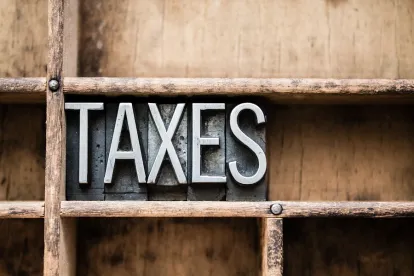After a brief discussion of the new procedure enacted by the Internal Revenue Service (the “IRS”) regarding the issuance of Estate Tax Closing Letters (“closing letter”) only if specifically requested by the taxpayer for all estate tax returns filed after June 1, 2015, we decided to watch closely to see what happened with requests for closing letters.
The IRS’s website of “Frequently Asked Questions on Estate Taxes” had been previously updated on June 16, 2015, and addressed the issue of when a closing letter could be expected. The IRS asked that taxpayers wait at least four months after filing the Estate Tax Return to make a request for the closing letter. The website also included a chart detailing when the IRS will and won’t issue a closing letter.
On August 31, 2015, we filed a 706 Return (no estate tax due) and on February 1, 2016, we sent the IRS a formal request for the closing letter. We received a closing letter on April 18, 2016, but it was interesting to note that the closing letter received from the IRS was dated October 28, 2015, almost six months earlier. It appears that it was “issued” by the IRS prior to our request but not mailed out until after we requested it.
On November 13, 2015, we filed a 706 Return (which had estate tax due) and on April 8, 2016, we sent the IRS a formal request for the closing letter. Instead of sending the closing letter, we received a letter from the IRS advising that our request for the closing letter was premature as the case is still open. Upon a call to the IRS at its toll free number (866) 699-4083, the agent advised us that the four month period only applies to those 706 Returns that have a $0.00 tax liability and/or filed for portability purposes. If an estate has a tax value, we were instructed to wait 6-9 months after filing a 706 Return to request the closing letter. The IRS indicated that they would not retain that original request, so another request would have to be made. This is not mentioned on the IRS website.
The IRS’s “Frequently Asked Questions on Estate Taxes” has since been updated. The only change made to the section about when a closing letter could be expected is that you can now call the IRS at their toll free number (866) 699-4083 to request the closing letter. When I called the number to inquire who can call and request the closing letter, the agent advised me that a paralegal can call on behalf of the attorney and request the closing letter. Another option is to fax the request to the IRS at (855) 386-5127. You will need to provide the following information when you call or fax the IRS:
-
Name of the decedent;
-
Decedent’s social security number; and
-
Date of Death.
The closing letter will be prepared and sent to the executor at the address of record. The IRS cannot provide any information as to the status of the filed return to the paralegal, but if the attorney calls and there is a Power of Attorney on file naming that attorney, the IRS will discuss the status of the filed return with the attorney.


 />i
/>i
